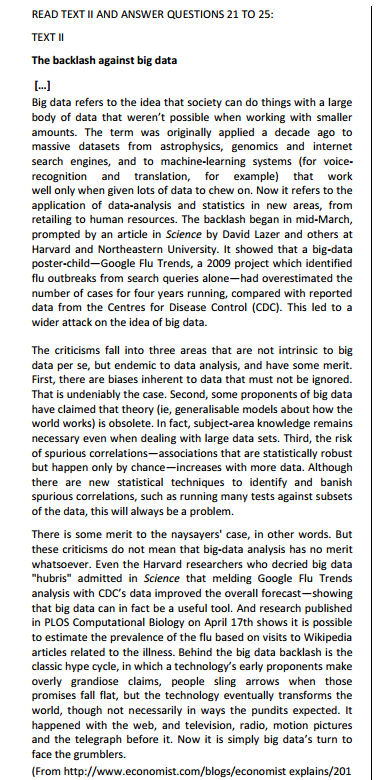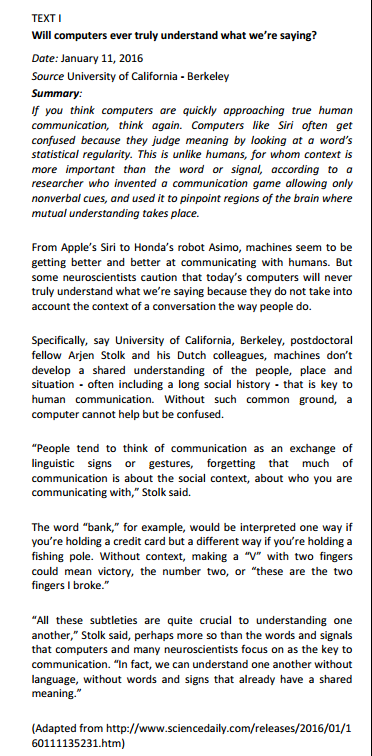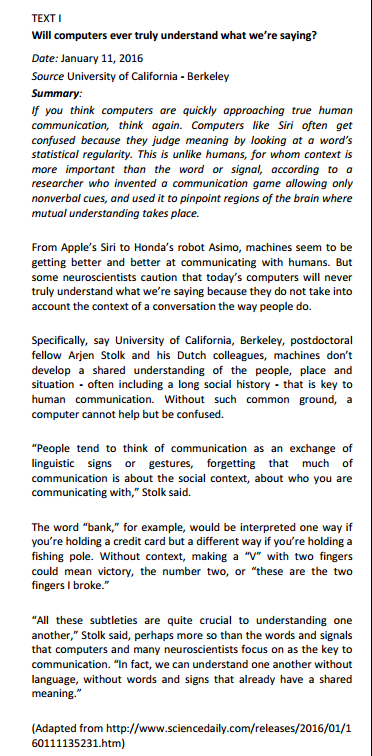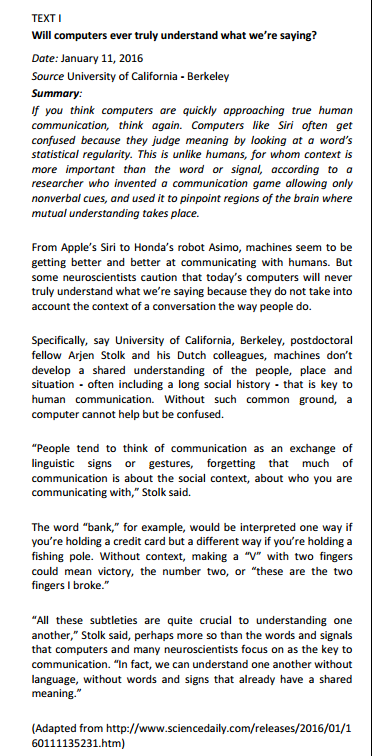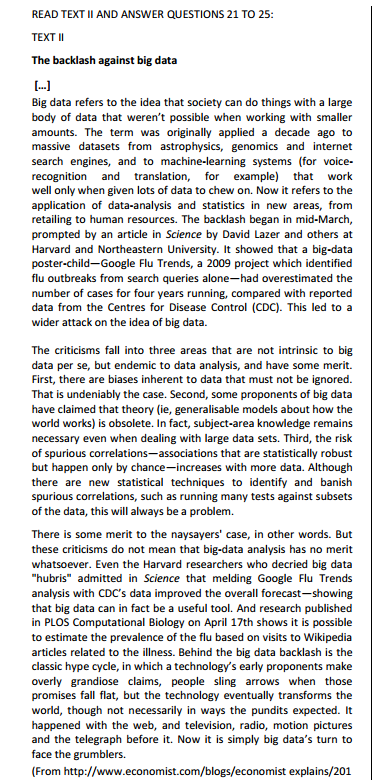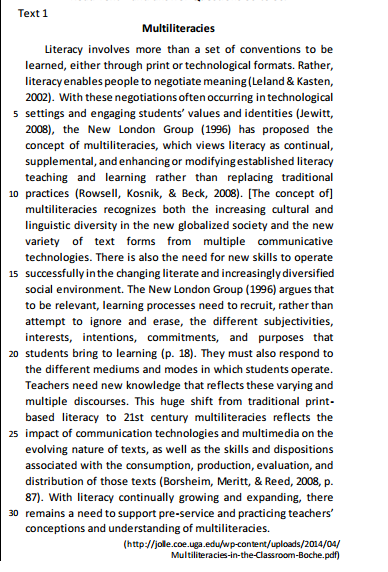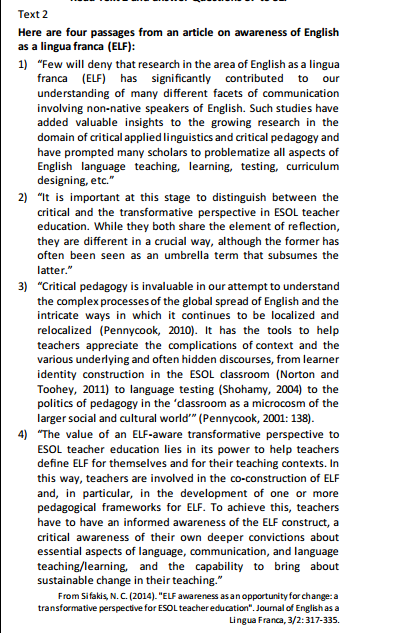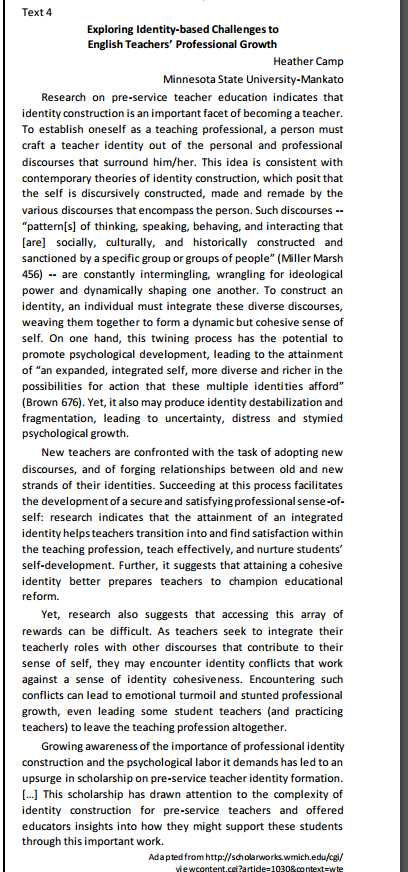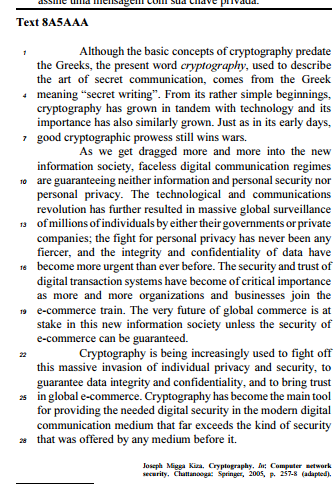The three main arguments against big data raised by Text II in the second paragraph are:
READ TEXT I AND ANSWER QUESTIONS 11 TO 15
TEXT I
Will computers ever truly understand what we're saying?
Date: January 11, 2016
Source University of California - Berkeley
Summary:
If you think computers are quickly approaching true human
communication, think again. Computers like Siri often get
confused because they judge meaning by looking at a word's
statistical regularity. This is unlike humans, for whom context is
more important than the word or signal, according to a
researcher who invented a communication game allowing only
nonverbal cues, and used it to pinpoint regions of the brain where
mutual understanding takes place.
From Apple's Siri to Honda's robot Asimo, machines seem to be
getting better and better at communicating with humans. But
some neuroscientists caution that today's computers will never
truly understand what we're saying because they do not take into
account the context of a conversation the way people do.
Specifically, say University of California, Berkeley, postdoctoral
fellow Arjen Stolk and his Dutch colleagues, machines don't
develop a shared understanding of the people, place and
situation - often including a long social history - that is key to
human communication. Without such common ground, a
computer cannot help but be confused.
"People tend to think of communication as an exchange of
linguistic signs or gestures, forgetting that much of
communication is about the social context, about who you are
communicating with," Stolk said.
The word "bank," for example, would be interpreted one way if
you're holding a credit card but a different way if you're holding a
fishing pole. Without context, making a "V" with two fingers
could mean victory, the number two, or "these are the two
fingers I broke."
"All these subtleties are quite crucial to understanding one
another," Stolk said, perhaps more so than the words and signals
that computers and many neuroscientists focus on as the key to
communication. "In fact, we can understand one another without
language, without words and signs that already have a shared
meaning."
(Adapted from http://www.sciencedaily.com/releases/2016/01/1
60111135231.htm)
Based on the summary provided for Text I, mark the statements below as TRUE (T ) or FALSE (F ). ( ) Contextual clues are still not accounted for by computers. ( ) Computers are unreliable because they focus on language patterns. ( ) A game has been invented based on the words people use. The statements are, respectively:
Based on the summary provided for Text I, mark the statements
below as TRUE (T ) or FALSE (F ).
( ) Contextual clues are still not accounted for by computers.
( ) Computers are unreliable because they focus on language
patterns.
( ) A game has been invented based on the words people use.
The statements are, respectively:
The three main arguments against big data raised by Text II in the second paragraph are:
According to Duboc (2016, p. 62), critical literacy differs from critical reading as the former holds that:
According to Jordão (2013), critical pedagogy differs from structuralist pedagogies because, among other reasons, it
Critical literacy emphasizes the need to use language as a vehicle for social change. One of the strategies a teacher may use for this purpose is
In a classroom situation in which the student asks the teacher if British or American pronunciation should be preferred, the most adequate answer the teacher should give, from a postcolonial orientation, is:
Duboc (2016, p. 65) mentions three generations of evaluation
practices.
Match the frameworks and the focus of their methods:
1- Behaviorism
2- Constructivism
3- Sociocultural theories
( ) Learner-centered methods
( ) Language-centered methods
( ) Learning-centered methods
Indicate the option that shows the correct matching, from top to
bottom.
Bohn (2013, p. 83 and 90) argues that in Brazil teacher identity has been strongly influenced by
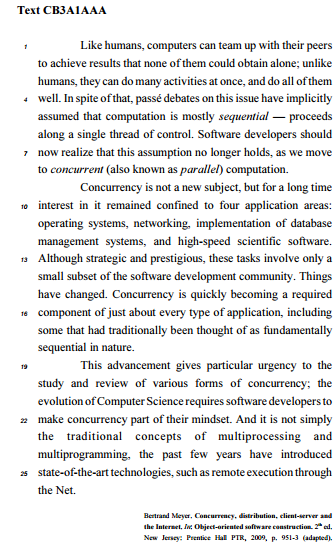
Judge the following items according to the text CB3A1AAA.
Software construction professionals must be acquainted with concurrency quickly.
It can be said from text 8A5AAA that cryptography and technology have

